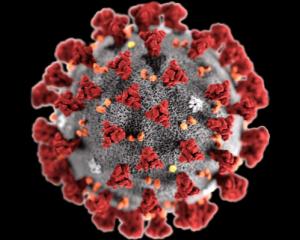
Teariki Ben-Nicholas (20) made his debut for the New Zealand under-20 team at the Oceania junior champs on the Gold Coast last year. He plays senior club rugby in Wellington, where he is studying law and commerce, and for the Hurricanes under-20 team.
Ben-Nicholas admitted a charge of common assault stemming from an incident in October 2014. He was out drinking "after a rugby success" when he learned his ex was at a Wellington bar with her new boyfriend, according to court documents released to NZME.
A "slightly intoxicated" Ben-Nicholas went there, approached the other man in the toilets and punched him in the head. He later made a "full and genuine apology" at a restorative justice meeting.
At sentencing in the Wellington District Court, Judge Peter Rollo granted an application for a discharge without conviction, saying the consequences of a conviction would be out of proportion to the seriousness of the offence.
Police opposed the application for a discharge, arguing that the assault was serious and any effects on travel plans and work as a professional rugby player were not certain.
University of Auckland associate law professor Bill Hodge, who is concerned about how many athletes are discharged without conviction, said yesterday he wasn't sure why a conviction against a rugby player would have more impact on his job prospects than someone who worked on a building site, for example.
"It seems to me it's for employers to make that decision, given the facts. It's about the facts and if the facts are relevant to whether a person should be hired or not."
At sentencing, Judge Rollo told Ben-Nicholas: "The information which is before me suggests that you have every opportunity to pursue a professional rugby career at the top level, maybe even rising as far as the All Blacks if your development continues."
He noted Ben-Nicholas, educated at King's College in Auckland, also had a plan B, in academic study.
"So, I have the clear view that you are someone who should be given a second chance to reach your full potential without a conviction standing in the way of that, and, in coming to that view, I then emphasise you have expressed genuine remorse, an apology, you have had insight into the causes of your offending [and] you recognise the mistake which you made in a serious way.
"You have taken appropriate steps to endeavour to address that and you have the possible glittering career ahead of you. In large part, I perceive from the victim impact statement from the restorative justice conference that the male victim does not want to stand in the way of your advancement either, which is to his credit."
Professor Hodge said courts tended to make "false assumptions" that people with convictions could not travel.
He had represented people who had been allowed into other countries after being convicted on less serious charges, although it would often involve paper work supporting entry.
"I have found that like anybody else, they can seek a visa and if they have the support of the professional athletic body, I would be confident that they would get entry," Professor Hodge said. "I think athletes or entertainers should be treated like anybody else."
At last month's sentencing, Ben-Nicholas was ordered to pay his victim $500 for emotional harm.
In an interview with clubrugby.co.nz, he said he moved to Wellington for "academic reasons" and because he liked Victoria University, where he was last year named Pasifika sportsperson of the year.
"I like the city too because it's small and easy to get around. The rugby has been great. [The Old-Boys University club] has a great vibe and I have done better than I thought I would," he told the website.
His club team won the Wellington competition last season; Ben-Nicholas scored a try.
Club president Bryan Gundersen said it would be unlikely to sanction Ben-Nicholas. "From my perspective as president, if any action would be taken it would be done by the club's committee and it has not reached our agenda yet."
According to figures from the Ministry of Justice, 16,580 people were discharged without conviction between 2009 and 2013, of the 557,264 people charged with offences.
Super Rugby prospects
The assault "could" affect Ben-Nicholas' chances of a Super Rugby call-up according to Hurricanes chief executive Avan Lee.
Ben-Nicholas made his debut for the New Zealand under-20 team last year and also played a game for the Hurricanes under-20 side.
Hurricanes chief executive Avan Lee today said Ben-Nicholas wasn't on the Hurricanes books this year.
Asked if the court case could affect future selection, Mr Lee said: "It could do."
"In an ideal world, we wouldn't want to have any players that have any sort of history like that, but that's a decision for the coaches and then it would be a discussion between the coaches and myself on whether or not that was appropriate."
Mr Lee said such a discussion would be about how the person had acted since their court appearance.
"From our perspective, he played one game for the Hurricanes under-20s last year, he's not contracted to the Hurricanes, but obviously any rugby player involved in a situation is not something we like to see and we certainly don't condone that kind of behaviour."
Mr Lee was unaware of the discharge until today.
Previous cases
Some other athletes discharged without conviction:
2015: Blues rugby player George Moala, who assaulted a man with intent to injure him during a bar fight
2015: Blues rugby player Tevita Li, for drink-driving
2014: Otago age-grade rugby rep Riley McDowall for assaulting a man in a street attack
2013: Central Districts cricketer Bevan Small, for drink-driving
2013: Blues rugby player Francis Saili, for driving while suspended











